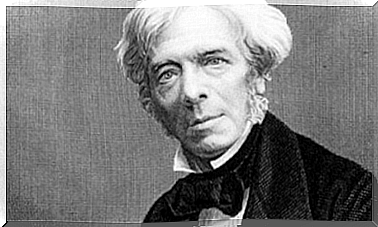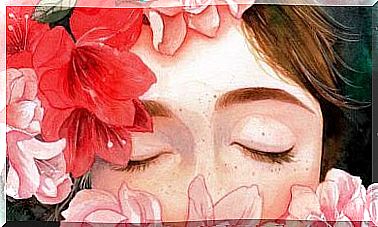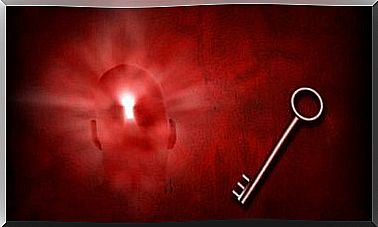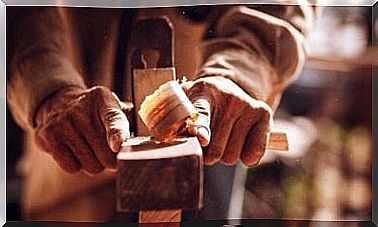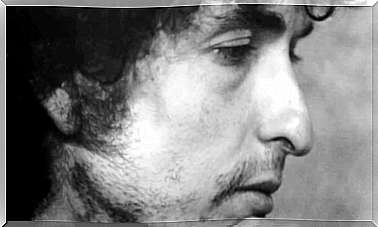My Routine: Save Energy Or Waste Energy?

What will you be doing today? Well, same thing I did yesterday, same thing I’ll do tomorrow. My routine. I will get up, have breakfast, get dressed and either catch the bus in the nick of time or miss the bus and be late. Maybe I’ll be there in time with my colleagues. I’ll get some papers off my desk and add some new ones. Then I’ll take a coffee break and have a neutral conversation about the latest episode of the show that everyone is talking about.
I will be working late to make progress and Friday everyone will go out together. Of course I will watch a movie at home and end up in bed imagining the possibilities for my life that I don’t have right now. This is my routine.
Perhaps Raphaëlle Giordano is right and your second life begins when you realize you only have one. We only hear that the starting signal has been given when we have had one of those experiences when we see our whole life passing by in the blink of an eye.
It’s a strange experience, “magical” according to people who have experienced it. Why? Because it has the power to put our priorities in order. These kinds of experiences are also important for another reason: to remind us that our future is not guaranteed.

Animals of habit
Nothing shapes a person’s will or way of thinking as powerfully as routine. Like a monk, we have our habits: frequent, constant and reliable. We carry our habits with us every day, so we are never naked and vulnerable to life.
Both habits and customs sound like routines. Things we almost always do the same and make us feel safe. They make our doubts disappear. After all, they are tried and true strategies for life’s problems.
Plus , my routine saves me a tremendous amount of energy. It’s like installing software that does everything automatically. I don’t have to think about it or design it. I only had to do it once and since then I’ve only perfected it. Suppose I used to take the bus to work, but one day they stopped that bus line and I found the subway was faster, contrary to what I thought.
Think about it if we had to think about these things every day: What should I have for breakfast? How should I go to work? When should I take my coffee break? These are questions we’ve already answered. So why create a new problem? Why put in more effort than necessary when I already have my routine?
Is my routine helpful, or is it a prison?
However, there may come a time when your routine is too tight and you don’t take a break when it overwhelms you. You probably know the feeling.
What used to help now feels more like a prison cell where oxygen is scarce. We think about breaking out, we even fantasize about it. But not doing what we do every day means climbing a steep slope – at least at first : leaving our comfort zone. It’s like we want it and don’t want it at the same time. In the end, we just choose the safe option: what we always do.
Acute Routinitis
But what are the symptoms of “acute routinitis”? Lack of motivation, feeling tired, sad or nostalgic, mood swings, apathy, disappointment… and the overwhelming feeling that we have everything – or almost everything – to be happy, and yet we are not.
We’re talking about the vague, overwhelming sense of emptiness that we often can’t determine exactly where it comes from. On the other hand, all the changes we imagine, things we’ve thought about over and over, seem absurd. Why should we try the bus again when we already know it will take longer? Why change our breakfast when it feels good and gives us energy all morning?
It has to do with not having new goals to replace those we have already achieved. Those new goals are just the tip of the iceberg, they are just the beginning of a dream. So if they’re missing, maybe our dreams are missing too.
Maybe my routine isn’t the worst in the world. Maybe you could call it a first world problem… or maybe not, because the truth is that combined with other things like loneliness, it’s one of the main reasons people get therapy.
Giordano tells us in her book – half laughing, half serious – that the prison that routine can end up in has so much power that it can suppress the mood of an entire country.

Routines: Good or Bad?
The best way to break routines and plans is improvisation. By doing new activities that we think we enjoy, but also by doing things every now and then just because people recommend them to us. Maybe they’ll surprise us a little, and that surprise might be what we need to unlock the lock on our ‘prison cell’.
In this sense we can also look at our personality, the aspect of “openness to experience.” It’s an ideal trait to develop – at least occasionally – when we don’t want to feed our daily routine and turn it into a monster.
Routine saves us a lot of energy, but it can also become a huge waste of time if we stop dominating it and become dominated by it instead. Sometimes we stop taking risks because we feel too safe. We’ve done the same thing too many times.
